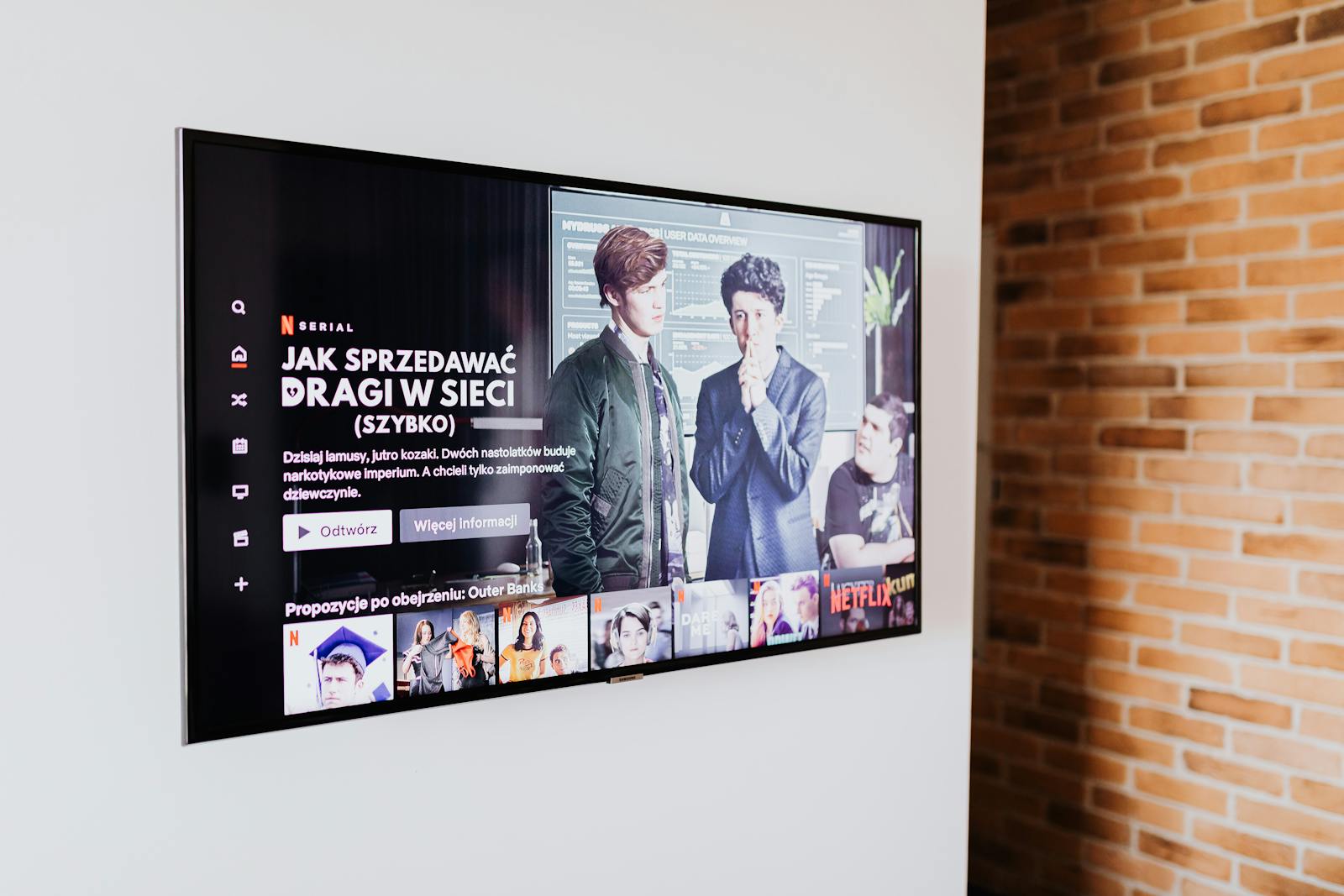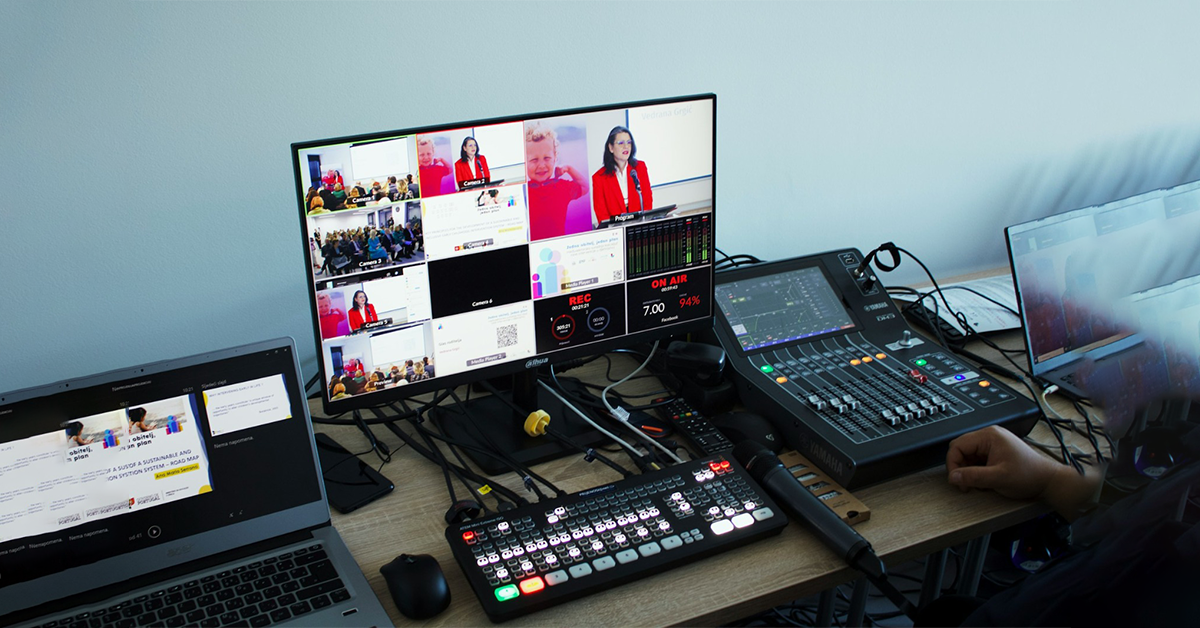So you’ve heard about webinars and you’re intrigued. You’re ready to take your knowledge to the next level and engage with your audience on a whole new level. Well, look no further because “The Ultimate Guide to Webinar Hosting: Engage, Educate, and Expand Your Audience” has got you covered. In this comprehensive guide, we’ll walk you through everything you need to know about hosting webinars, from planning and preparation to engaging your audience and expanding your reach. Whether you’re a seasoned pro or just starting out, this guide will provide you with the tools and strategies to host a successful webinar that will captivate and educate your audience. So let’s dive in and take your webinar hosting skills to new heights!
Unlock the Secret to Flawless Webinars – Contact Virtual Studio Today!
Understanding the Importance of Webinars
Webinars have become increasingly popular in recent years as a means of effectively engaging, educating, and expanding your audience. But what exactly is a webinar? Well, a webinar, short for “web seminar,” is a live online event that allows individuals, businesses, and organizations to connect with their target audience in a virtual setting. It provides an interactive platform where participants can join from anywhere in the world and engage in real-time discussions, presentations, and Q&A sessions.
Benefits of Webinars
Webinars offer a wide range of benefits for both the hosts and the participants. For hosts, webinars provide a unique opportunity to establish themselves as thought leaders in their industry, showcase their expertise, and promote their products or services. They can reach a global audience without the need for travel or physical venues, saving time and resources. Webinars also allow hosts to gather valuable feedback, nurture leads, and build relationships with their audience.
For participants, webinars offer convenience and flexibility. Instead of attending a physical event, they can join from the comfort of their own homes or offices. Webinars provide access to expert knowledge and insights, enabling participants to learn new concepts, acquire skills, and stay updated on industry trends. They can also interact with the hosts and engage in meaningful discussions, gaining a deeper understanding of the topics at hand.
Role of Webinars in Business Growth and Learning
Webinars play a crucial role in the growth and learning of businesses and individuals alike. For businesses, webinars serve as powerful tools for lead generation, marketing, and sales. By hosting webinars, businesses can attract their target audience, demonstrate the value of their products or services, and generate qualified leads. Webinars also foster customer loyalty and trust, making it more likely for participants to become paying customers.
On the learning front, webinars provide a convenient and cost-effective way for individuals to acquire new knowledge and skills. Professionals can attend webinars to enhance their expertise, stay updated on industry developments, and expand their professional network. Webinars also offer a platform for educational institutions to provide distance learning opportunities, reaching students from different parts of the world.
Choosing the Right Webinar Platform
Now that we understand the importance of webinars, let’s delve into the process of choosing the right webinar platform. With numerous options available, it’s essential to consider several factors to ensure you select the platform that best suits your needs.
Factors to Consider When Choosing a Webinar Platform
When evaluating webinar platforms, consider factors such as ease of use, features and functionality, scalability, customization options, and integration capabilities. It’s crucial to choose a platform that aligns with your technical capabilities and objectives.
Think about the size of your potential audience and the number of attendees you expect for each webinar. Some platforms are better suited for smaller, more intimate webinars, while others can handle larger-scale events with thousands of participants.
Free vs Paid Webinar Platforms
While free webinar platforms may seem appealing, they often come with limitations in terms of features, customization options, and technical support. Paid webinar platforms, on the other hand, offer more comprehensive features, robust security measures, and reliable customer support. Consider your budget and requirements when deciding between free and paid options.
Top Webinar Platforms
Some top webinar platforms include Zoom, GoToWebinar, and Microsoft Teams. These platforms offer a range of features such as screen sharing, live chat, polling, and breakout rooms. They provide reliable connections, user-friendly interfaces, and the ability to scale to accommodate small or large audiences.
Planning Your Webinar
Once you have chosen a webinar platform, it’s time to start planning your webinar. This involves several crucial steps to ensure a successful and engaging event.
Choosing a Webinar Topic
Selecting a compelling webinar topic is essential to attract and engage your target audience. Consider trends in your industry, common pain points or challenges faced by your audience, and areas where you can provide valuable insights or solutions. Conduct research, survey your audience, and analyze industry data to identify topics that will resonate with your audience and showcase your expertise.
Setting Objectives for Your Webinar
Clearly define the objectives for your webinar. What do you want to achieve? Is it to generate leads, promote a product or service, educate your audience, or establish your brand as an industry leader? Setting specific and measurable goals will help structure your webinar content and determine your success in the post-webinar evaluation.
Identifying Your Target Audience
Understanding your target audience is crucial for tailoring your webinar content and marketing efforts. Identify their demographics, preferences, and pain points. This knowledge will guide the language, tone, and format of your webinar, ensuring it resonates with your audience and provides them with valuable insights or solutions.
Creating Engaging Webinar Content
Now that you have planned the foundation of your webinar, it’s time to focus on creating engaging content that will captivate your audience.
Formulating a Script
Creating a script or outline for your webinar will help ensure that your content flows smoothly and covers all the key points you want to address. It will also help you stay on track and maintain a consistent and engaging delivery. Include an introduction, main points, supporting examples, and a strong conclusion that summarizes the key takeaways.
Visualizing Your Presentation
A visually appealing presentation can enhance audience engagement and comprehension. Utilize compelling visuals such as slides, videos, and infographics to illustrate your points and break up the content. Choose a clear and readable font, use colors that align with your branding, and maintain a consistent design throughout your presentation.
Interactive Components to Consider
To keep your audience engaged, consider incorporating interactive components into your webinar. These can include live polls, quizzes, Q&A sessions, and interactive exercises. Interactive elements encourage active participation and make the webinar more memorable and enjoyable for participants.
Technical Aspects of Hosting a Webinar
Understanding the technical aspects of hosting a webinar is crucial for ensuring a smooth and seamless experience for both hosts and participants.
Understanding Webinar Software
Familiarize yourself with the webinar software you will be using. Explore its features, practice setting up and hosting webinars, and become comfortable with managing various aspects such as screen sharing, audio settings, and recording options. This will help you avoid technical difficulties during your live event.
Testing Your Equipment and Internet Connection
Before hosting a webinar, thoroughly test your audio equipment, camera, and internet connection. Ensure that your microphone and speakers are working correctly and that your video quality is clear. Test your internet speed to ensure a stable and reliable connection, as interruptions or lag can negatively impact the webinar experience.
Managing Your Webinar Settings
Take the time to configure your webinar settings according to your preferences. This includes setting up registration forms, managing participant permissions, enabling chat features, and configuring privacy settings. Consider whether you want to allow participants to join with video and audio or restrict them to text-based interactions.
Promoting Your Webinar
To attract a significant number of participants to your webinar, effective promotion is key. Implement a well-rounded marketing strategy to maximize registrations.
Strategies for Webinar Promotion
Utilize various channels to promote your webinar, including your website, blog posts, social media platforms, and email newsletters. Craft compelling and informative content that highlights the value of attending your webinar and provides clear instructions for registration. Leverage your existing network and industry partnerships to extend your reach.
Increasing Registrations through Email Marketing
Build an email list of individuals who have shown interest in your industry or previous webinars. Send personalized and targeted email campaigns to encourage registration. Highlight the benefits, key takeaways, and speakers to entice recipients to sign up.
Leveraging Social Media for Webinar Promotion
Leverage the power of social media platforms to promote your webinar. Create engaging posts and graphics that capture attention and drive traffic to your registration page. Use relevant hashtags, join relevant groups or communities, and engage with your audience by responding to comments and inquiries promptly.
Webinar Hosting Etiquettes and Best Practices
Hosting a webinar involves adhering to certain etiquette and following best practices to ensure a professional and engaging experience for both hosts and participants.
Starting and Ending on Time
Respect your participants’ time by starting and ending the webinar on schedule. Begin with a brief introduction and set expectations for what participants can expect from the session. End with a clear concluding statement and a call to action, if applicable.
Pre-webinar Housekeeping Announcements
Before diving into your content, make any necessary housekeeping announcements. Explain how participants can ask questions, access handouts or resources, and interact with the host or co-hosts. Remind participants to mute their microphones when not speaking and encourage them to use the chat feature for any technical or logistical issues.
Handling Questions and Technical Difficulties
Encourage participants to ask questions throughout the webinar and address them periodically. Repeat or paraphrase each question before answering to ensure everyone understands the context. Be prepared to troubleshoot technical difficulties that participants may encounter and have backup plans in case of major technical failures.
Engaging Your Audience During the Webinar
A successful webinar is one that actively engages the audience, fostering participation and interaction.
Using Interactive Tools
Throughout the webinar, utilize interactive tools to engage your audience. Conduct live polls to gather opinions, conduct quizzes to gauge comprehension, and encourage participants to participate in real-time discussions through the chat feature. This creates a sense of involvement and stimulates active learning.
Acknowledge Attendees
Make an effort to acknowledge attendees by name and thank them for their participation. This personal touch makes participants feel appreciated and valued. Address particular questions, comments, or contributions from attendees to show that their input is valued.
Encouraging Questions and Discussion
Create an environment that encourages questions and discussion. After delivering a section of your presentation or covering a specific topic, open the floor for questions. Encourage participants to share their insights, experiences, or challenges related to the topic. This fosters a sense of community and collective learning.
Ready to Captivate Your Audience? Let Virtual Studio Elevate Your Webinar Game!
Post-Webinar Follow Up
The webinar doesn’t end when the live session concludes. It’s crucial to follow up with participants to maximize the impact of your webinar and nurture leads.
Providing a Webinar Recording
Send participants a recording of the webinar after the live session concludes. This allows those who missed the live event to still benefit from the content and insights. Include any additional resources, handouts, or links you referenced during the webinar. Make it easy for participants to access and share the recording.
Gathering Webinar Feedback
Ask participants for feedback through a post-webinar survey or email. Inquire about their overall experience, the quality of the content, and suggestions for improvement. This feedback can help you fine-tune future webinars and identify areas for growth and enhancement.
Nurture Leads with Post-Webinar Content
Use the opportunity to nurture leads through post-webinar content. Follow up with participants via email, providing additional resources, blog posts, or relevant offers linked to the webinar topic. Tailor these communications to each participant’s interests, needs, and engagement level to increase the likelihood of conversion.
Measuring Your Webinar Success
Measuring the success of your webinar is essential for evaluating its effectiveness, identifying areas for improvement, and refining your webinar strategy.
Metrics for Measuring Webinar Success
Metrics such as attendee count, registration rate, engagement rate, attendee feedback, conversion rate, and post-webinar sales can provide insights into the success of your webinar. Analyze these metrics to understand your audience’s level of interest and engagement and to evaluate the ROI of your webinar.
Analyzing Webinar Data
Leverage the data collected from your webinar to improve future webinars. Identify trends and patterns, analyze attendee behavior, and evaluate the effectiveness of specific content or engagement strategies. This data-driven approach can help you optimize your future webinars for maximum impact.
Improving Future Webinars Based on Data
Based on your analysis of webinar data, make strategic adjustments to improve future webinars. Refine your topics, content structure, engagement strategies, and promotional efforts. Continuously learn from each webinar and implement best practices to enhance your overall webinar hosting capabilities.
In conclusion, webinars are powerful tools for engaging, educating, and expanding your audience. By understanding the importance of webinars, choosing the right platform, planning meticulously, creating engaging content, and effectively hosting and promoting your webinar, you can achieve your objectives and maximize the success of your webinars. Embrace the opportunities that webinars present, and reap the benefits of connecting with a global audience in a meaningful and impactful way.
Transform Your Webinars from Bland to Grand – Connect with Virtual Studio Experts!







